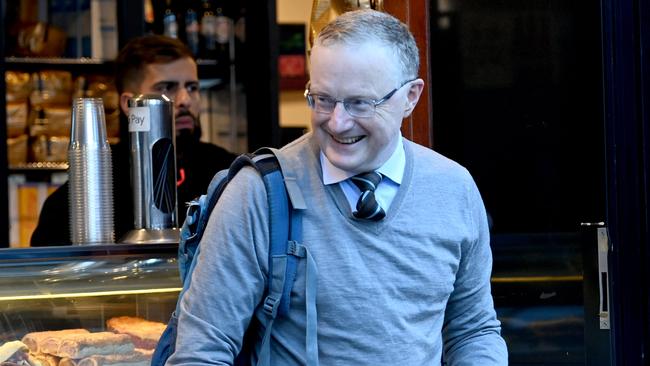Revealed: cheapest loans for home buyers, refinancers following latest interest rate decision
As the RBA pauses rates, savvy homeowners, buyers and investors can save plenty over the course of their loan. See the best deals and use our calculator to work out how much you will pay.
Property
Don't miss out on the headlines from Property. Followed categories will be added to My News.
Property owners and buyers have a window of opportunity to get loans at interest rates below 5 per cent following the Reserve Bank’s decision to put the cash rate on hold this month.
The Reserve Bank of Australia announced at its Tuesday board meeting that it would hold off raising the cash rate again, but it also noted that “global inflation remains high” and this could “lead to tighter financial conditions”.
With further rate rises still a possibility, analysis from comparison group Finder.com.au showed only a handful of loan products were still on offer with a rate that had a four in front.
The cheapest loan product currently available for new home buyers was 4.84 per cent, while the best rate being offered for refinancers was 4.54 per cent.

The cheapest rate for investors, who usually have to borrow at a higher rate than owner occupiers, is 4.64 per cent, according to the Finder.com.au study.
The bulk of the cheapest loan products were from lenders outside of the big four major banks.
Finder.com.au head of consumer research Graham Cooke said mortgagees shopping for the cheapest loans needed to be wary of focusing solely on the interest rate.
MORE: Albo’s broken promise as 100k homes ‘go missing’
This was because products with low rates could often have added fees, while other features such as the minimum deposit required were critical components of the loan.
“Consumers may find it tempting to look for a minimum deposit under 20 per cent, however borrowers should be cautious of buying a property with such a low deposit,” he said.
“Firstly, it can dramatically increase the interest cost of your loan over 30 years.
“Second, in a declining market it narrows the gap between the value of your loan and your home – opening up the potential for borrowing to go into negative equity.”
Mr Cooke said that some lenders have introduced cashback offers which reward consumers for taking out a mortgage by giving them dollars back into their bank account.
These products also required caution, he said.
“There are a number of loans with competitive rates that offer up to $4000 cashback. This could be a welcome boost at a crucial time, but pay attention to the details before signing – don’t get distracted by the bells and whistles.”
It comes as economists continue to speculate whether the Reserve Bank of Australia has finished its current cycle of cash rate rises.
Ahead of the central bank’s April board meeting, a panel of 42 economists and market experts polled by Finder was split on the prospect of another rise, with 62 per cent believing there would be another increase.
Among them was economist Saul Eslake, who noted that high inflation and increasing rates in other countries such as the United States would force the RBA’s hand.
“On balance, and noting the increases in rates by the Fed, the (European Central Bank) and (Bank of England) over the past month, I suspect that the RBA Board will come to the view that the case for a ‘pause’ at this meeting isn’t sufficiently persuasive,” Mr Eslake said.

The University of Tasmania’s Mala Raghaven said living costs were rising too quickly for the Reserve Bank to hold rates.
“Though the monthly CPI indicator shows signs of slower growth in goods prices, the costs of essential items such as housing, food and non-alcoholic beverages are still way above the target rate,” she said.
“Households in the lowest wealth and income quintiles face significantly more financial stress than those in higher quintiles. Therefore, given the rising cost of living, the RBA is expected to tighten the monetary policy in April in its effort to tame inflation.”
Many of the economists who predicted the RBA to put rates on hold argued that there may a need for the bank to reflect on the impact of previous increases.
“It makes sense for the RBA to wait in this new risky financial environment,” said University of Sydney economist Cameron Murray.
RBA governor Phillip Lowe said in a statement following this month’s board meeting it needed to assess the impact of earlier rate changes.
“The Board recognises that monetary policy operates with a lag and that the full effect of this substantial increase in interest rates is yet to be felt,” he said.
“The Board took the decision to hold interest rates steady this month to provide additional time to assess the impact of the increase in interest rates to date and the economic outlook.”
Originally published as Revealed: cheapest loans for home buyers, refinancers following latest interest rate decision





